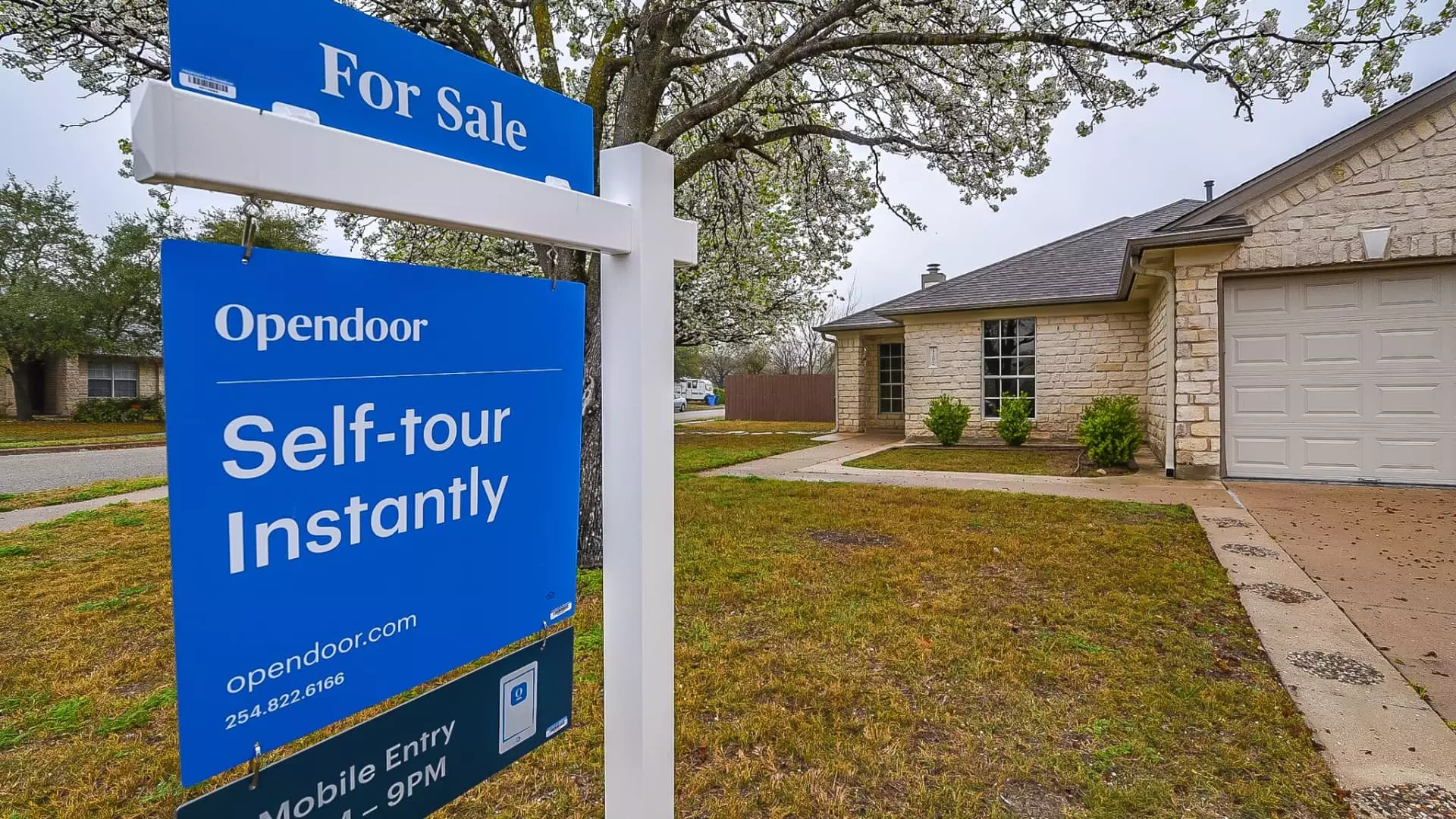In the volatile world of real estate and tech-driven disruptions, Opendoor’s recent stock surge appears more as a remarkable gamble than a sustainable turnaround. After sinking to an all-time low of just 51 cents, the company’s shares have skyrocketed nearly fivefold since July, an astonishing reversal fueled largely by speculative fervor and strategic bets from hedge funds. Yet, this apparent comeback feels like a fragile illusion, built on shifting sands rather than firm ground. The core issues—rising interest rates, declining home sales, and a faltering business model—remain largely unaddressed. The market’s fascination with quick rebounds often overlooks the underlying fragility, and Opendoor’s recent optimism could be a mirage that distracts investors from the stark reality.
Market Speculation vs. Structural Reality
The rally’s chief catalyst was the exposure of hedge fund manager Eric Jackson’s bullish stance, projecting a hopeful future where Opendoor’s stock could soar to $82. Such predictions, while perhaps inspiring to some, raise immediate red flags. Betting on a return to growth based on historical speculation rather than concrete improvements is inherently risky. The company’s revenue, after a steep decline during the peak of the interest rate hikes, shows no signs of a robust recovery. The modest 4% increase in recent quarters is overshadowed by a projected revenue decline of over 36% in the upcoming quarter. These figures highlight a persisting structural weakness in Opendoor’s core business, which is struggling to adapt to a housing market rendered increasingly toxic by mortgage rate hikes and a reduction in homebuyer demand.
Strategic Shift: A Desperate Attempt at Relevance
CEO Carrie Wheeler’s focus on pivoting the company’s core operations—shifting from high-capital iBuying to a referral-based model—clings to the hope of survival amid turbulent market conditions. She frames this transition as the most pivotal strategic move in the company’s history, yet the tone feels more like a well-rehearsed deflection than a confident blueprint. Moving away from capital-intensive buying and selling to a less burdensome referral model might reduce immediate risk, but it also signifies an acknowledgment of the company’s shrinking moat. This move, instead of signaling strength, underscores the challenging environment Opendoor finds itself in—one where traditional growth strategies are no longer viable, and survival hinges on incremental pivots rather than transformative innovation.
The Risks of Overvaluation and Unrealized Promises
Despite the market’s enthusiasm, the valuation of Opendoor remains highly speculative. The company’s past during the Covid-2019 boom revealed how over-optimistic assumptions can quickly tumble when market fundamentals shift. The recent rally, driven by the hope that increased investor interest—particularly from prominent hedge funds—will translate into long-term profitability, rests on tenuous ground. The company’s financials do little to justify the lofty expectations. Narrowed losses and moderate revenue gains are temporary patches that mask a business still vulnerable to macroeconomic headwinds. Investors betting on a full recovery must accept that the path forward is riddled with uncertainties—whether due to further interest rate hikes, market saturation, or the fundamental flaws in Opendoor’s initial business model.
The Short-Term Illusion and the Long-Term Reality
Opendoor’s fleeting rise highlights a broader issue within markets: the allure of quick gains often blurs the judgment of genuine value. The company’s narrative of resilience and strategic renewal may appeal to optimistic investors, but skepticism remains warranted. The housing market’s current trajectory—characterized by high mortgage rates and subdued buyer demand—does little to support a sustainable bounce-back. Additionally, the company’s commitment to reducing marketing expenses indicates an acknowledgment of the challenging environment, yet such austerity measures are not enough to reverse decades of operational weaknesses.
Final Reflection: A Game of Hope and Hype
While the market is naturally inclined to chase the next big turnaround, the case of Opendoor reveals the perils of overenthusiasm powered more by speculation than solid fundamentals. The recent rally offers a cautionary tale about how temporary optimism can mask the underlying structural vulnerabilities of disruptive companies that, under pressure, tend to revert to their historical weaknesses. For those who believe in cautious progress and value-based investing, Opendoor serves as a stark reminder: true revival requires more than just a resurgence in stock price—what’s necessary is a realistic acknowledgment of challenges and a concrete plan to address them. Until then, the stock remains a high-stakes gamble that could just as easily unravel as it did soar.


Leave a Reply